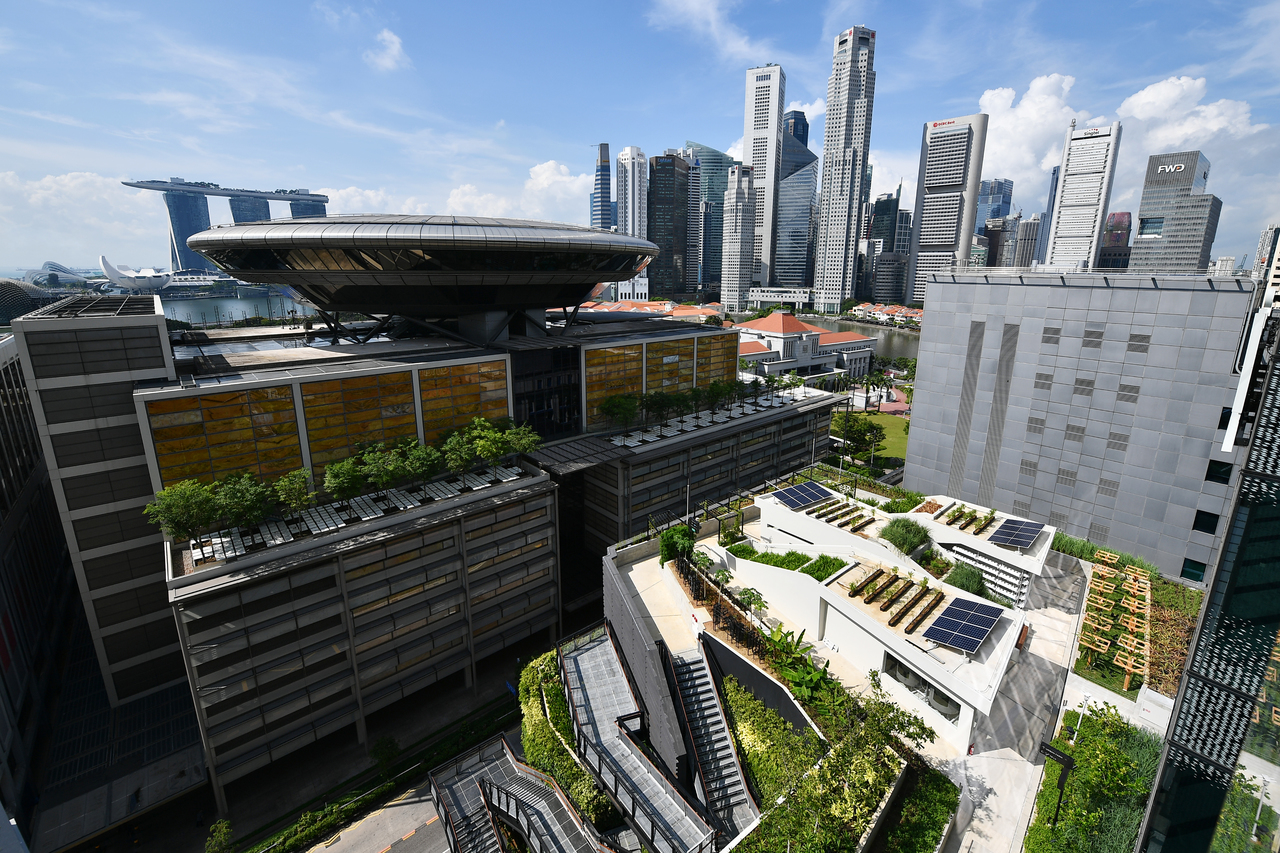Budget debate: Govt committed to Attorney-General's independence, no need to split adviser and prosecutor roles
Sign up now: Get ST's newsletters delivered to your inbox

Generations of attorneys-general in Singapore have shown through their actions that they will not shy away from taking criminals to task, no matter their connections or positions. As a result, there is a high level of trust in the Attorney-General's Chambers,
PHOTO: ST FILE
SINGAPORE - The Attorney-General has full discretion to decide who to prosecute, and is protected from political pressure in his role as the enforcer of criminal law, said Senior Minister of State for Law Edwin Tong.
This independence of the Attorney-General's prosecutorial discretion is something the Government respects, he added on Friday (Feb 28).
Mr Tong was responding to Workers' Party chairman Sylvia Lim, who suggested splitting the Attorney-General's dual role as the Government's chief legal adviser and Public Prosecutor, such that there are separate offices for each.
He noted that generations of attorneys-general in Singapore have shown through their actions that they will not shy away from taking criminals to task, no matter their connections or positions.
As a result, there is a high level of trust in the Attorney-General's Chambers, he said as Parliament debated the Attorney-General's Chambers' budget.
Ms Lim (Aljunied GRC) said the two roles require that the Attorney-General behave quite differently.
As the chief legal adviser, the Attorney-General takes instructions from the Government and may have to take certain courses of action even if he does not agree, whereas as Public Prosecutor he has the sole authority to decide on criminal proceedings and must be fiercely independent.
She said this separation of roles should be introduced as a matter of design - not because there are current issues - but to pre-empt future problems.
Acknowledging that the thrust of Ms Lim's speech was about trust, Mr Tong said: "The Government fully agrees that public confidence is important. And because of the way we have built up our institutions, public confidence in our institutions is high. Our institutions work well and have worked well."
Survey statistics released in 2016 found that 90 per cent of respondents said they had confidence in the Attorney-General's Chambers, he said.
This confidence did not develop by chance, and was the result of "prudent legal safeguards, as well as the integrity of those in the system", he added.
Listing the safeguards, he noted that the Constitution ensures the Attorney-General is able to "discharge both his roles as Public Prosecutor and as the Government's legal adviser without fear or favour".
The President and Prime Minister must also both agree on the Attorney-General's appointment under Singapore's dual-key system, he added, unlike in other common law jurisdictions such as England and Wales, Australia and New Zealand where this is decided solely by a government minister.
In Singapore, the Attorney-General also does not hold a political office, which means he is not subject to political pressure, said Mr Tong.
In other jurisdictions like Australia, the Attorney-General also holds a political office - making it necessary to separate the role of the Attorney-General from that of the Public Prosecutor, he added.
Ms Lim had also suggested granting security of tenure to the Public Prosecutor.
She proposed a longer minimum term of employment of six years for the Attorney-General, similar to the term of employment for the Auditor-General.
To this, Mr Tong said Singapore was not unique in not providing tenure to attorneys-general. He cited other mature common law jurisdictions such as England and Wales, where officers in charge of prosecutions typically serve predetermined renewable terms.
But the Senior Minister of State said what is more important is that it is very difficult to remove the Attorney-General in Singapore.
This can only be done if the President, Prime Minister and a tribunal of three judges, including the Chief Justice, all agree that the Attorney-General is unable to discharge his duties owing to mental or physical infirmity or misbehaviour.
But Ms Lim said since an Attorney-General's term limit can be as short as two years, this means his contract can just be allowed to lapse and he can still be removed after a short time.
In response, Mr Tong said that what drives Singapore's decision "ultimately has to be output, performance, and the way in which the public retains and reposes confidence in the functions of the AG".
On this count, the Attorney-General's actions are also important, said Mr Tong.
He noted that Attorney-General Lucien Wong had recently said the Attorney-General's independence "is enshrined in the Constitution and is an established rule of practice within Chambers".
Over the years, the Attorney-General has also prosecuted those in high positions, including a minister of state, sitting and former MPs, a Singapore Civil Defence Force commissioner, then National Kidney Foundation chief executive, and then PUB's deputy chief executive, he said.
He added that the Government constantly reviews Singapore's system and will not hesitate to make adjustments where appropriate.
"The public trust the Attorney-General and the broader legal system because we appoint individuals of the highest calibre and integrity, and they exercise their discretion independently. The high levels of public trust in our legal system, and the Attorney-General's Chambers, speak for themselves," said Mr Tong.
"I would like to take this opportunity to reaffirm the Government's fundamental commitment to, and respect for, the Attorney-General's independent exercise of prosecutorial discretion, which is essential to a society governed by the rule of law."


